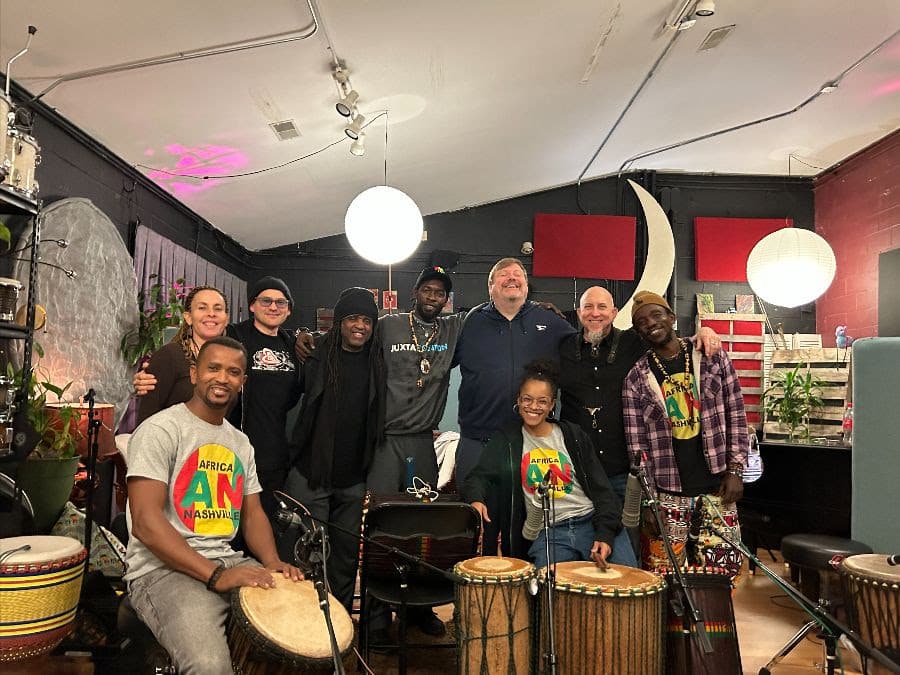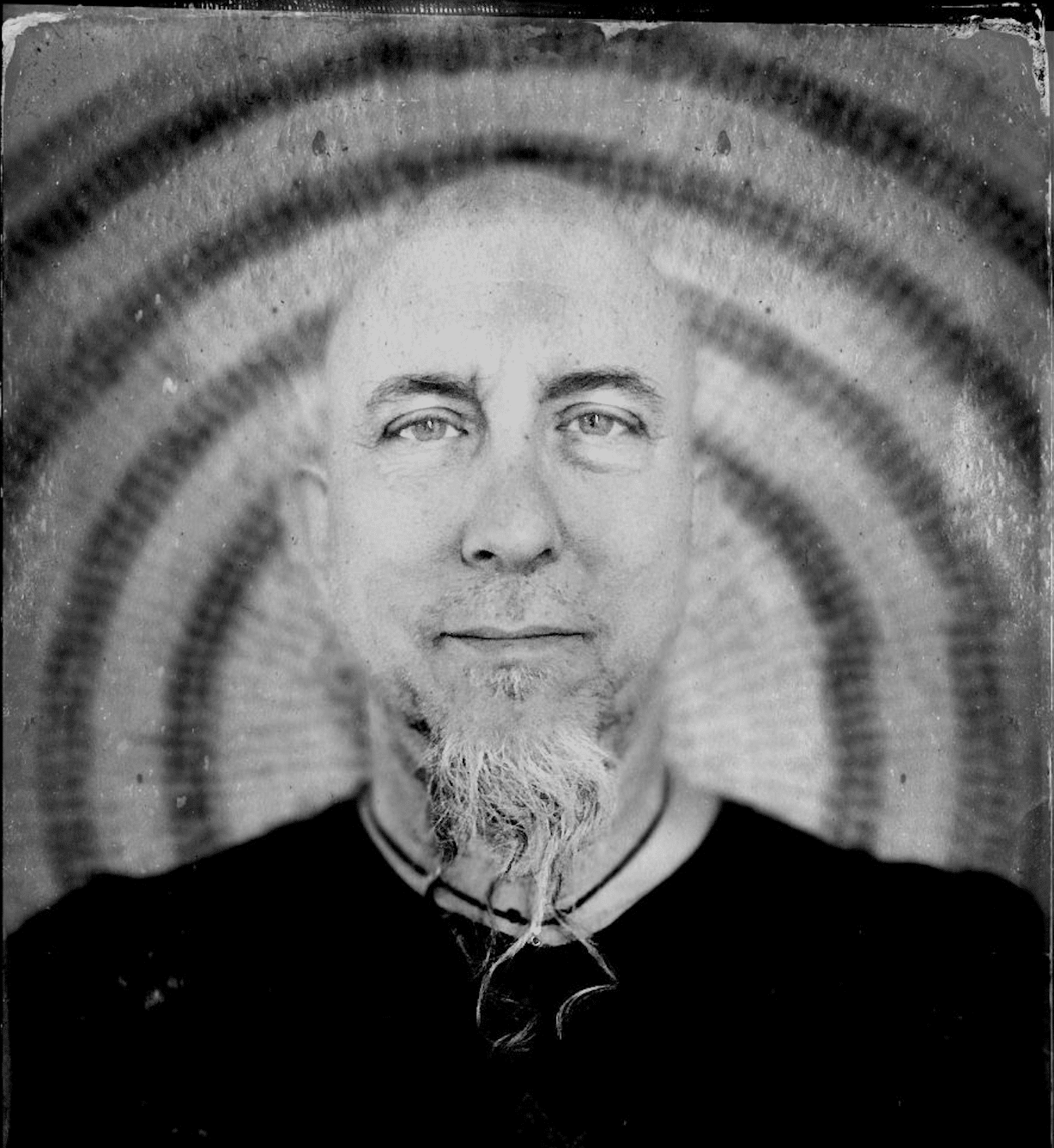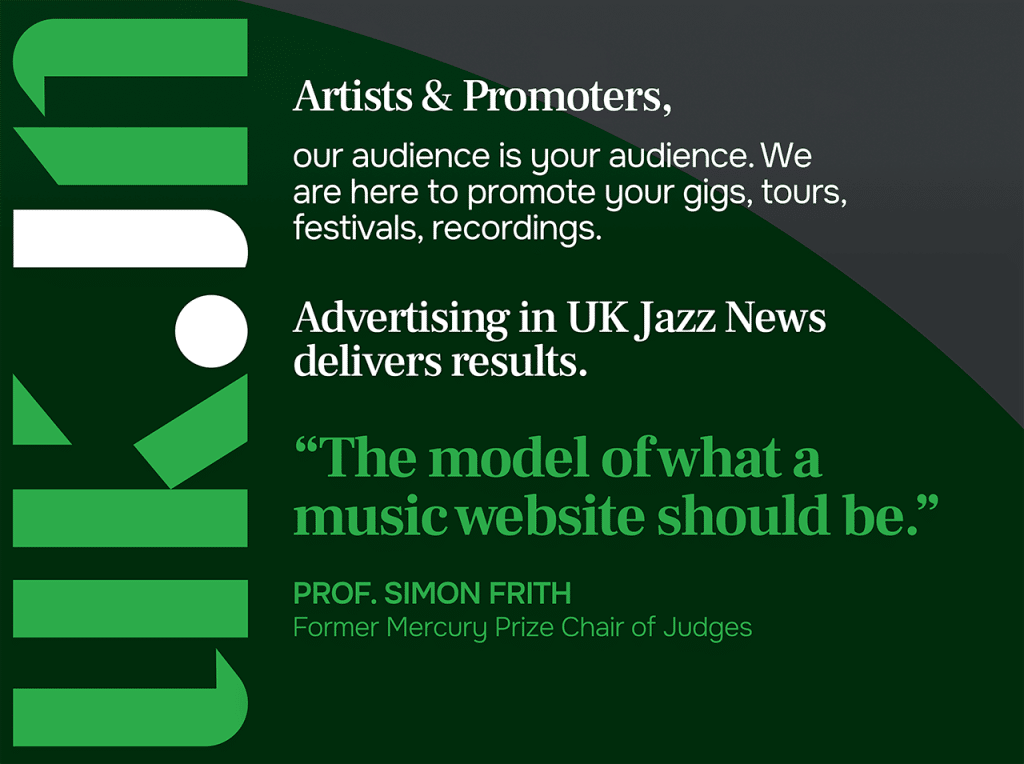The following is an interview between jazz journalist Morgan Enos and saxophonist, composer and educator Jeff Coffin, currently in Dave Matthews Band, formerly of Béla Fleck and the Flecktones. His new album, Only the Horizon, was released 19 July via Ear Up Records. Links to purchase the album, and to Coffin’s website, can be found at the end of this article.
For his new album, Only the Horizon, Jeff Coffin assembled a dazzling array of musicians, both in quality and sheer diversity. But one thing unites them, and arguably all of American music: the drumming traditions of West Africa.
“It was interesting to watch them coalesce as a group,” says Coffin. He’s referring to four West African drummers, only semi-acquainted with each other, who play brilliantly on Only the Horizon – but that just as easily applies to the wild assemblage of other players therein.
For instance, the band includes drummer Carter Beauford, bassist Victor Wooten, and banjoist Béla Fleck. The list still spirals forth: MonoNeon, Bill Evans, Keb’ Mo, and fellow Flecktone Roy “Future Man” Wooten.
Read on for a full interview with Coffin about how the album came together.
UK Jazz News: It had to be logistically insane to make Only the Horizon.
Jeff Coffin: That was challenging for sure. I did a bunch of it here; I had demoed stuff at the house using different drum loops. I would come up with a bassline using the Nord [gestures backward] over there.
When people were in town, and I was able to get them over, I would do that. Then, the Yeli ensemble, the big stuff, we did at a studio down the street. So, it’s kind of a mishmash; I would do it when I could, which is why it took me so long.
There were certain players that I wanted on certain tunes, and I had to find a time when they were available. I wanted to be sure that the tune was far enough along that when I sent it to them, they could have something to latch onto.
So, I got [bassist] Stefan Lessard from Dave Matthews on before I got [DMB drummer] Carter Beauford on the track. And then I got [DMB keyboardist] Buddy Strong, and then [soprano saxophonist] Bill Evans.
Sometimes, getting in touch with people is tricky, man. Everybody’s got other stuff, and I cannot expect or hope that my music is going to be more important than their lives. So, I’m sure to be patient and understand that they have other things that are going on.
So, I kept checking back, and gently nudging, and hoping that something was going to show up in my inbox. But I didn’t have a deadline for it, so I was fine – [still], it was a logistical challenge and nightmare at the same time.
UKJN: A mishmash of contexts, ensembles, and sessions: what was the throughline of it all?
JC: The West African drummers. So, there’s an organization that I helped to found, that’s primarily run by [co-founder] Windship Boyd. She’s a wonderful dancer, and a great proponent of African music here in Nashville.
We started with four drummers. Two live in France and have Ghanian roots. Two, who are from Guinea, came from Senegal.
So, I started writing material with them in mind. The music I’m influenced by is Black American music, so I wanted to infuse the music I was writing with West African percussion.
UKJN: When did African music — West African or otherwise — first really grab you?
JC: I first got interested in it when I was in college. I heard some music out of the Congo, and some Nigerian Afropop as well, and it just spun my head around.
Ever since, I’ve been deeply into African music, the music of Mali in particular. So, that music has always influenced how I play, how I write, what I listen to, what I share.
It’s kind of a full circle moment for me. Not that the cycle is over; I’m just saying it’s come to a point where the opportunity presented itself to work with these musicians. And it’s incredible. It fits seamlessly, in my opinion.

UKJN: What was your approach to the production and engineering of Only the Horizon?
JC: I’ve got good mics here, and I feel like I can get good sounds. I would say probably 70% of that record is stuff I recorded. So, I feel like there’s an organic process to it, because I’m not trying to get slick with it. I’m trying to capture the sounds of the musicians, like they sound to me.
There’s stuff that’s a little out of tune. There are things that aren’t pristine, sound wise. But it’s real. Its intention is pure. I’m just trying to get to the music.
I think the room sounds great. This room is double-walled; it’s basically soundproofed. And there’s a lot of stuff [in here right now] to kind of diffuse the sound. It’s a pretty dry room.
I don’t really know what I’m doing, quite honestly. But I know enough about music that I can figure out where to put things.
And I’m not above, by any stretch, saying, “Well, where would you put it?” to the person playing the instrument. I’ll test it, play it back for them, and say, “How does this sound to you? Well, it’s a little far away. Let’s try this.” I’m trying to acquiesce to what sound they’re looking for, as much as anything else.
LINKS:


